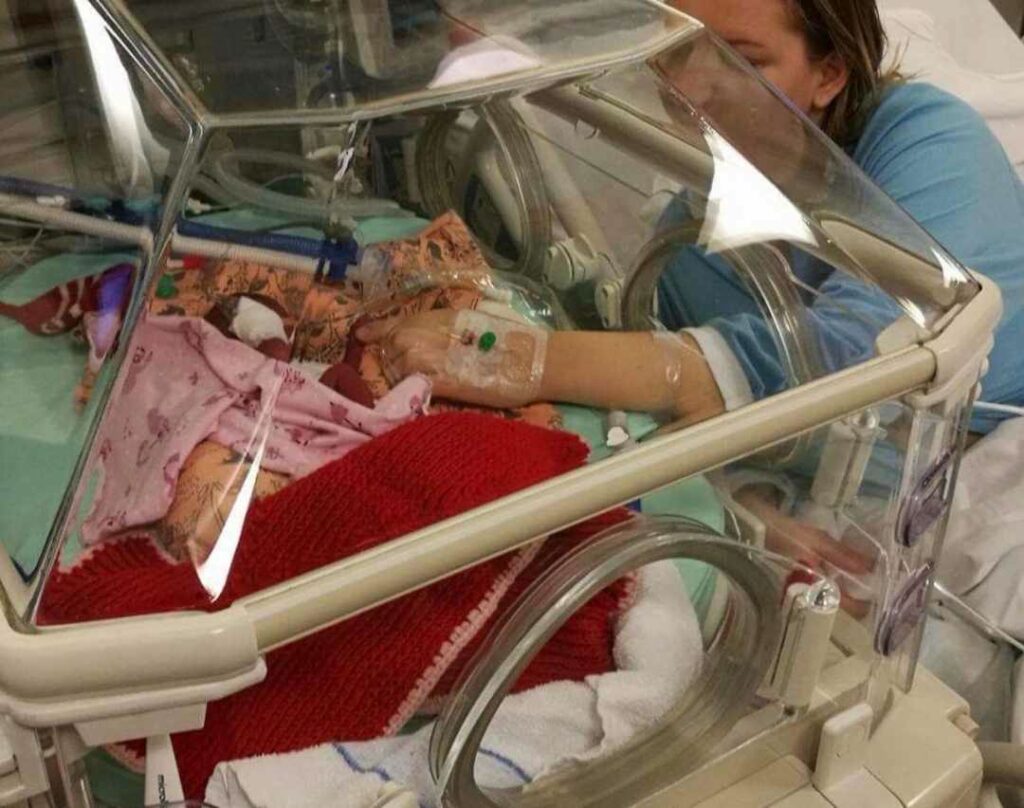Follow-up register - for prematurely born children

The lion mothers were invited to participate in the hearing concerning the establishment of a consent-based follow-up register for newborns admitted to the neonatal intensive care unit with a known risk of later developmental abnormalities.
The Norwegian Neonatal Medical Quality Register (NNK) has had the status of a national medical quality register since 2004. All children in Norway admitted to a neonatal intensive care unit are registered in the NNK.
NNK is authorized by regulation to register all newborn children admitted to a neonatal intensive care unit, the reason for admission, the treatment they received during admission and their health status on discharge. However, NNK's registrations stop at discharge from the neonatal intensive care unit. NNK's registrations over the last almost 20 years tell of improvement and progress in several areas of Norwegian neonatal medicine. At the same time, we know from research that some of the children have an increased risk of later motor and cognitive developmental difficulties. However, we do not have a comprehensive national overview of how children in the risk groups fare over time after discharge from the neonatal intensive care unit. Over time, there has been a strong desire in the Norwegian neonatal community to be able to establish a consent-based follow-up register where children in risk groups could be followed over time with regard to their motor and cognitive development as well as the children's and families' self-reported quality of life. This is knowledge that we currently lack to a large extent and could be important in future planning and organization of neonatal medicine in Norway for the benefit of patients and relatives.
NNK's professional council decided at a meeting in September 2022 to set up a broadly composed interdisciplinary working group with representatives of the users to investigate the issue of establishing a consent-based national follow-up register for at-risk children admitted to Norwegian neonatal wards. The working group was given a mandate by NNK's management for the work with the aim of being able to present the results of the work in the form of a basic document at the register's professional council meeting and annual conference in September 2023.
NNK has now requested comments and input on the content from relevant professionals and interest organisations.
Below you can read Løvemammaene's consultation response.

Løvemammaene supports the proposal to establish a follow-up register of prematurely born children. This proposal has direct relevance for many of the members of Løvemammaene, as many of our members have children who started their lives in the neonatal intensive care unit.
However, it is important to point out some concerns on our part and suggestions for improvements in the proposal:
Inclusion of premature children with a gestational age between 28 – 30 weeks and/or a birth weight below 1000 – 1500 grams:
It is problematic that this group is omitted from the follow-up register. Research shows that even children born within this interval can experience long-term challenges, both motor, language and cognitive. They can suffer delayed injuries such as mild motor challenges, reduced tolerance window and endurance, language delays, sensory difficulties, as well as an increased risk of ADHD and similar conditions. The lion mothers learn that many parents experience that children in this interval fall between two chairs. We consider it important to include this group of children in the follow-up register in order to ensure proper follow-up and support for these children and their families, and to be able to capture those children who are struggling in everyday life, kindergarten and after each school.
Severity of brain damage:
Point 2 of the criteria in the proposal mentions severe intraventricular haemorrhage (IVH grade III or IV), cystic periventricular leukomalacia (cPVL) or cerebral infarction as one of the patient groups to be included in the follow-up register. It is important to point out that even less serious brain injuries can have significant consequences. We see it as necessary to expand the definition to include all types of brain damage that can potentially affect the child's development, visual perception, learning, independence and quality of life now and later in life.
International comparisons:
Several countries, including Belgium, have follow-up registers that include premature children with a higher gestational age than what is proposed in the follow-up register for Norway. We recommend that a similar approach be considered to ensure that our follow-up register provides a holistic understanding of the challenges these children face.
Children who are apparently healthy at discharge:
A significant proportion of premature children return home apparently healthy after birth, but develop obvious late injuries/diseases such as epilepsy, refusal to eat, late-detected PVL, bowel disorders, malaise states and the like during the infant period. We therefore recommend considering the inclusion of these cases in the follow-up register to capture any after-effects of early birth.
Otherwise, as mentioned at the beginning, the proposal is supported in its entirety.
Thank you for the opportunity to participate in this important hearing.
With best regards
The lion mothers
- Published:
- The lion mothers
- Published:
- The lion mothers